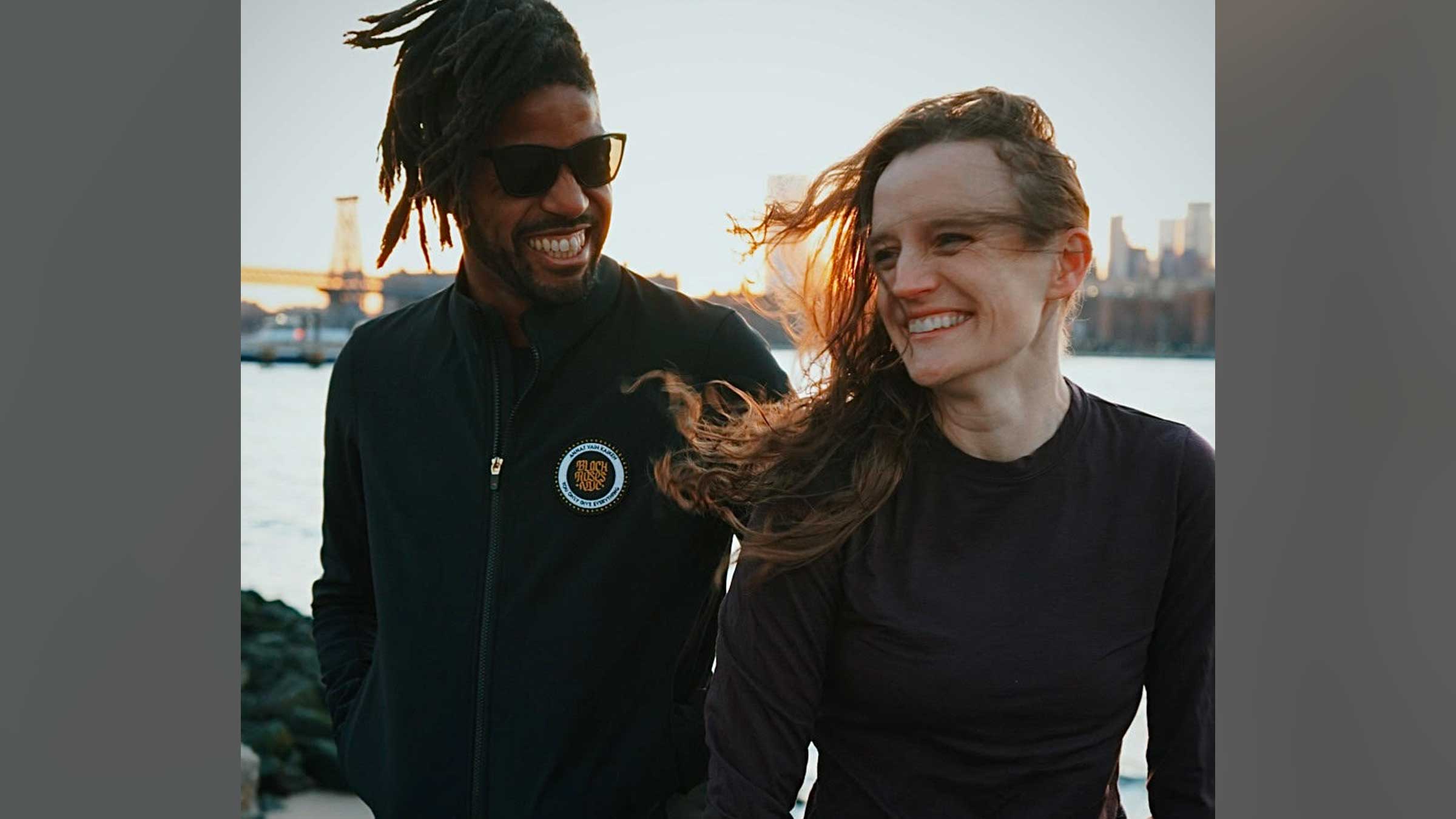The New Podcast From Tina Muir and Knox Robinson Is Worth Your Time

(Photo: Mari De Monte)
“If I’m just out there running and getting healthier and then keeping all of what I gain from my running to myself, what good does it do for anyone else?” says Simran Jeet Singh, author of Fauja Singh Keeps Going: The True Story of the Oldest Person to Ever Run a Marathon. He’s saying this to Tina Muir and Knox Robinson on their new podcast, Running Realized.
I’m listening while getting ready for the day and feeling so tired.
“I think about this as a practice for myself to connect, to grow, to be healthy, to take care of myself. But I see it almost as a battery. I use running as my charge and then that enables me in the rest of my life to contribute to justice in all different forms,” he continues.
I needed this latest episode, “The Inner Disconnect,” after a long couple of weeks that included two mass shootings, one of which was too close to home. It’s become a cliche, but also an undeniable truth to say that it’s been a long year. My battery was feeling completely depleted.
Muir, a professional runner and veteran podcaster, and Robinson, a writer, coach, and co-founder of the Black Roses running group, created Running Realized “out of the energy of 2020.” And as a result, they’re practicing exactly what Singh is saying on their platform. They are using running to energize change.
The podcast, which launched February 22, currently has three episodes to stream. Each one hits on a different topic they feel needs to be addressed in running. Episode one dives into the shockingly small list of American-born Black female runners who have broken three hours in the marathon. Episode two explores the lack of female coaches and why we need more of them. Episode three pivots to explore the introspective and spiritual disconnect that many of us face.
RELATED: 3 Podcasts We’re Listening to Right Now
As Muir describes, the style of the show aims to hit in a way that the running community has yet to experience. “You have a lot of those highly produced NPR, Gimlet-style shows, and yet the running space is all straight interview format,” she says. And she’s right.
We’ve heard the same athlete do the whole podcast circuit, answering the same or similar questions. Occasionally a new nugget comes through, but the interview/casual conversation style podcast is no longer new or nuanced in this space.
This is the “Invisibilia” of running podcasts.
“We’re centering experiences we haven’t heard from before. We’re doing that in a first-person context. We’re doing that with a specific theme. We’re not having a runner of color on the podcast and then asking them about their PRs. Nor are we asking a runner from the dominant culture or from the power paradigm what they think about Black Lives Matter. We’re not replicating the dominant paradigm,” says Robinson.
They do that through a very specific formula: A story. An interview. Listener takeaways. And they end with a piece of art. “I’ve always been in love with the visceral aspect of first-person, as-told-to narratives,” says Robinson. In Running Realized that manifests through ultramarathoner Shaun Martin’s exploration of running as a form of prayer for Navajo people. Or Rebecca Mehra’s recollection of the change she experienced when she was finally coached by a fellow woman.
For Robinson, sharing the guest’s experience in an unfiltered way is the most gratifying part. “I love just passing over the platform to someone and say whatever you want to say and we’re going to blast it out. We don’t know what folks are going to say. We don’t have a script, obviously. It’s really edifying to be able to share those first-person accounts unvarnished and unpoliced and unsanctioned actually,” he says.
Each episode ends with a relevant piece of art or culture, which is really what gives the podcast its unique flavor. “Everyone we’re featuring is a runner within the space who maybe has another talent or another area or focus just to bring awareness,” says Muir. It’s important, she says, to highlight the skills that people have beyond just running. So far that’s looked like an excerpt from Alexi Pappas’ Bravey, Tianna Bartoletta’s guided meditation, and Tracksmith Fellow Circa ‘95’s music.
Muir and Robinson couldn’t share too much of what’s to come in the rest of the season, but the fourth episode has potential to reveal yet another untouched angle in the running community: How transgender and non-binary runners are making moves in the ultra and trail running space. “This is a good example, this upcoming episode, where the running space is leading the charge and doing something very positive compared to other sports,” says Muir.
The duo are quietly crafting a space, using the tools that they have, where runners can authentically take a look at all facets of the culture around them—not just what is considered mainstream.
“I really hope that it grows to be a platform to share peoples’ voices,” says Knox. “People are hurting. People are being erased. People are being rendered invisible. And to think this could be a vehicle in the context of running while everyone is setting PR’s, buying expensive shoes, and going to big city races. If we could really use this as a positive space to reconcile some of the challenges that are affecting the running culture, then I think that would sort of underscore our aspirations even from the very beginning.”